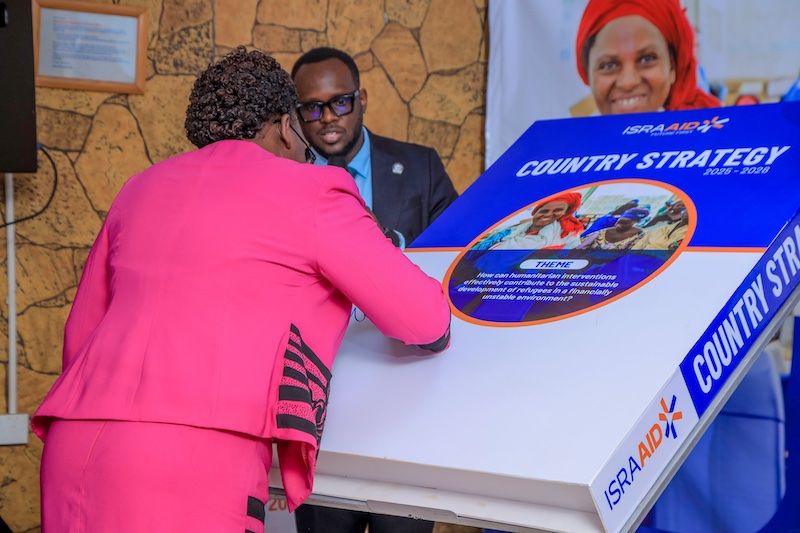
In the face of escalating global refugee crisis and a shrinking pool of humanitarian funding, IsraAID Uganda is charting a determined path forward.
Building upon a decade of experience, the organization has officially launched its ambitious 2025–2028 Country Strategy with a plan to transform short-term aid into long-term community resilience.
This new strategy, launched on October 14 at Hotel Africana, is a direct response to a critical juncture. Uganda currently hosts over 1.9 million refugees—the highest number in Africa— yet the humanitarian sector is grappling with severe funding cuts.
A recent U.S. government executive order in January, 2025 slashed funding to key programs, creating a staggering 54% funding gap in Uganda. The consequences are already being felt: reduced food rations, overcrowded classrooms, and immense strain on health and water systems.
“Our focus is resilience. With the dwindling global funding for the humanitarian sector localization, strategic partnerships, and resource efficiency will be the key drivers in our work going forward,” said Delphine Mugisha, IsraAID Uganda country director.
“We are committed to empowering refugee communities to become first responders and agents of their own development.”
The strategy consolidates and scales successful resilience models pioneered in the Palorinya and Nakivale refugee settlements since 2015. It focuses on three priority locations: continuing long-term programs in Palorinya; scaling up WASH, health, livelihoods, and protection in Nakivale; and launching new interventions at the Nyakabande transit center, which is receiving high numbers of Congolese asylum seekers.
By 2028, the goal is to reach over 200,000 direct beneficiaries. To achieve this impact in a challenging financial climate, the strategy outlines a robust operational framework. This includes deepening partnerships with refugee-led and community-based organizations (RLOs and CBOs), engaging the private sector, diversifying funding through local philanthropy, and improving financial systems for greater efficiency.
What’s more, a new country communications unit will also be established to amplify visibility and donor engagement.
IsraAID further urges donors, partners, and local philanthropists to support this transformative strategy. The aim is to ensure that every refugee in Uganda— especially the 57% who are children— can access the protection, dignity, and opportunities they deserve, building a future defined not by crisis, but by self- reliance.



